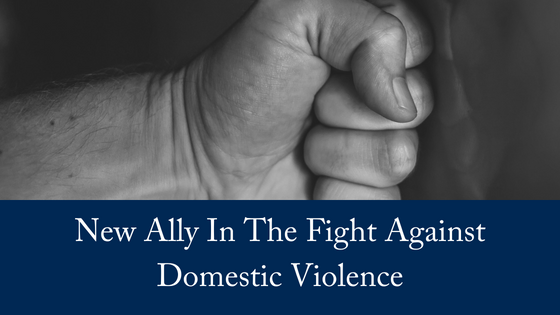Victims of family violence have just picked up a new ally in the fight against domestic violence, and it comes from a perhaps unlikely source – real estate agents.
When property manager Stephanie Dunn saw the fist-sized hole in the wall and locks fitted on the outside of the doors, she knew that something was wrong.
The “domestic violence red flags” at the Ambarvale property she rented to tenants continued to play on Ms Dunn’s mind, well after she visited the south-western Sydney home.
Then she had a light bulb moment. Realising that real estate agents are in a unique position to see the “warning signs” of domestic violence, Ms Dunn’s company Embassy Real Estate will next month launch a nation-wide program called DV Aware for real estate professionals.
Data from the Australian Institute of Health and Welfare released in February shows that one in six Australian women and one in 20 Australian men over the age of 15 have been subject to violence at the hands of an intimate partner.
Managing tenants’ property gives a unique insight into their lives, Ms Dunn says, and puts real estate agents in a unique position to provide help to victims of domestic violence.
“We know that domestic violence perpetrators often isolate their partners from their family and their friends,” she said. “But a real estate agent comes into your home, at least a few times a year. That puts you in a privileged position, really, to be able to tell what’s going on,” she said.
The program was developed together with service providers from the Uniting Church’s Parramatta Mission. It launches in Parramatta and MacArthur this month, followed by a roll-out across the rest of NSW, then Tasmania and Western Australia.
The three-hour program will count towards real estate agents’ ongoing education requirements, and aims to equip them with the skills to recognise the signs of domestic and family violence, understand the appropriate ways to respond and provide knowledge of what services victims can be referred to.
Violence in the home doesn’t always leave an obvious trail for anyone to see, and the system is not expected to be foolproof.
But, Ms Dunn said, it aims to arm rental agents with the skills to notice violence in the homes they rent and an obvious next step.
Another profession in a privileged position to see domestic violence are doctors, specifically general practitioners and emergency room doctors. Women who experience domestic violence tend to visit GPs and hospitals more often, but few are identified and offered support, research shows.
Maria Nittis, the department head of the forensic medical units of the Western Sydney and Nepean Local Health Districts, said victims of domestic assault often fall through the cracks of the health system.
 She has helped develop a program that uses hospital forensic services usually provided to sexual assault victims to people who have been physically assaulted by their partners.
She has helped develop a program that uses hospital forensic services usually provided to sexual assault victims to people who have been physically assaulted by their partners.
“Getting documentation of injuries and providing photos does help a judge or magistrate to understand what’s actually happened,” she said. “We have seen quite major injuries from fractured eye sockets to quite minor injuries … but sometimes something as simple as a bruise on the arm can speak volumes.”
She said the service was able to see about 40 to 45 women a year, and already it appeared “this year would be a record year”.
She said the service should at least be rolled out to other local health districts that had existing forensic units, although even then many women would still be missed. An evaluation had found the program appeared to increase the likelihood a perpetrator would be convicted.
Australian Medical Association NSW president Brian Owler said domestic violence was under-resourced across all areas of health. He added that it could be difficult for doctors to broach the subject of domestic violence with patients, and sometimes perpetrators would even accompany their partners into the consulting room.
What are the signs of domestic violence?
You might be able to pick up that someone is experiencing domestic violence. Signs include:
- they have lost their confidence or are unusually quiet
- they seem afraid of their partner
- they have stopped seeing their friends or family
- their partner often criticises them, humiliates them, orders them about or makes all the decisions
- they often talk about their partner’s jealousy or bad temper
- they say their partner pressures or forces them into sexual activity
- they have physical injuries, like bruises, broken bones, sprains, cuts
- the children seem afraid of the person or are very withdrawn or anxious
A relationship can be considered abusive if:
- a partner controls how the other spends money, what they wear or what they do
- a partner regularly accuses the other of flirting or being unfaithful
- a partner regularly humiliates the other in public
- a partner threatens, hurts or physically assaults the other
- a partner prevents the other from seeing family or friends
Determine how safe it is for you and your friend before you decide how to support them. Get some advice, if you need to. Talk to your friend or relative in a sensitive way, letting them know you are worried. Don’t push the person into talking if they are uncomfortable, but let them know that you’re there if they need to talk.
If you need assistance with any aspect of separation, divorce or domestic violence, please contact our friendly, experienced team today. We offer a FREE, 10-minute phone consultation.

